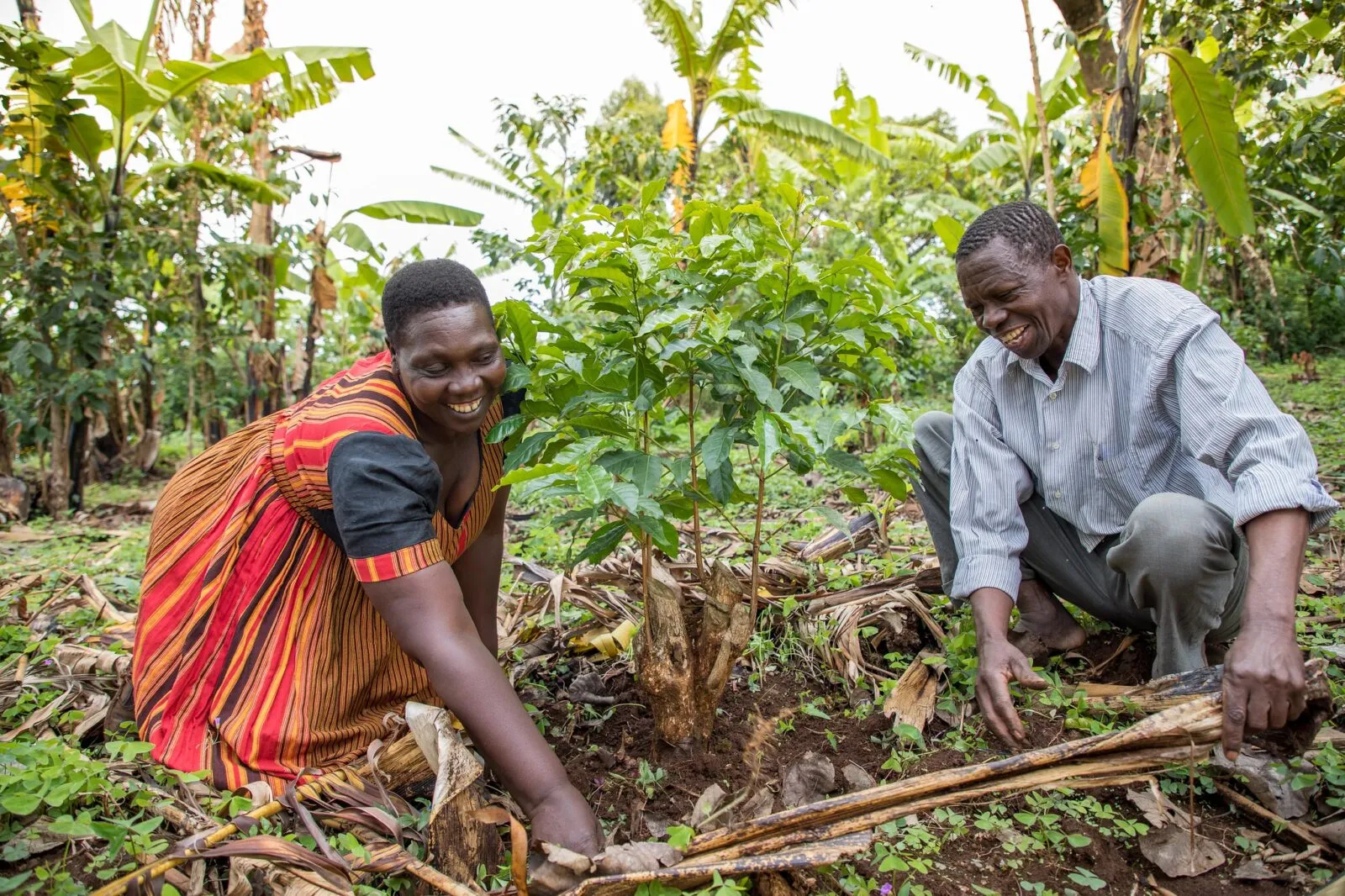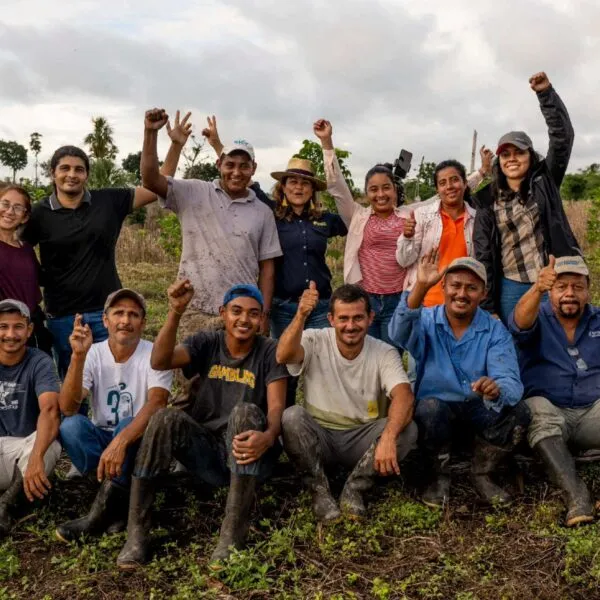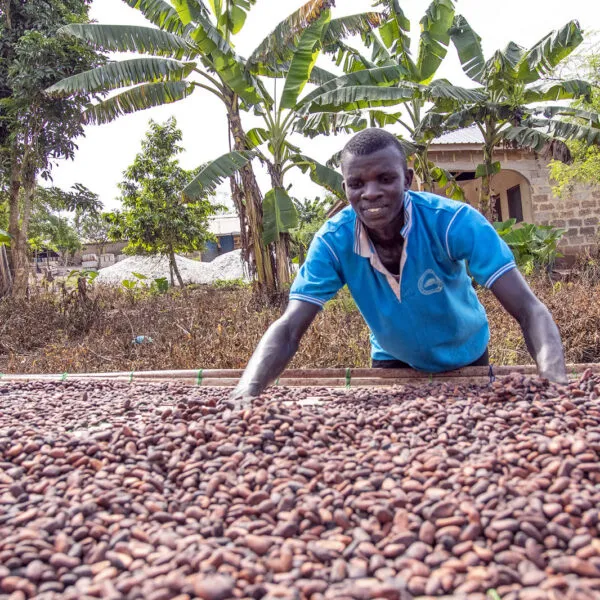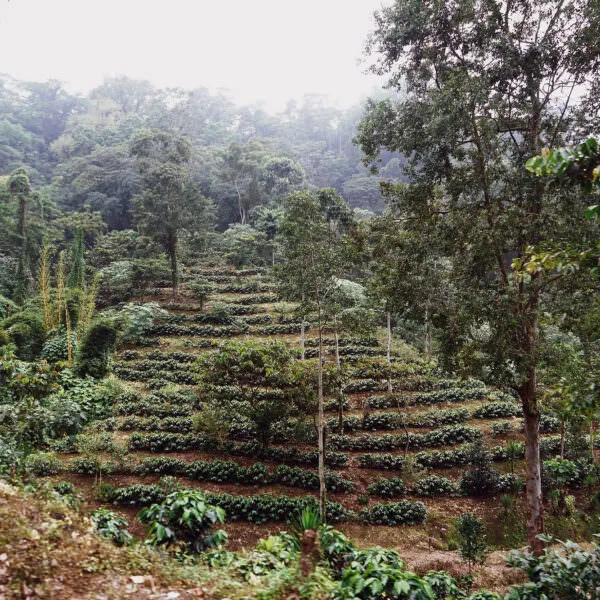When you consider the biggest challenges facing the world today—for instance, deforestation and pandemics or climate change and modern slavery—it’s clear that seemingly separate problems are actually connected through complex webs of cause-and-effect. After 30 years of championing sustainability in farming and forestry, the Rainforest Alliance has learned that these challenges call for equally entwined solutions. Through advocacy, landscape and community-level programs, tailored supply chain services, and our certification program, we use a smart mix of complementary approaches to create a more just and sustainable future. Legislation on corporate Human Rights and Environmental Due Diligence (HREDD) is an essential part of this mix to protect people and nature.
We have long worked to make responsible business the new normal by advancing voluntary, private sector sustainability practices in agriculture and forestry. However, given that accelerating climate instability is disproportionately impacting those who rely on the land for their livelihoods, certification and other voluntary business measures are not enough on their own. To make our vision a reality, we need overarching legislation that requires due diligence for all companies.
What is mandatory due diligence legislation?
Mandatory due diligence legislation can ensure that companies identify, prevent, mitigate, and account for potential risks and negative impacts that their practices may have on human rights and the environment. Purposeful development and implementation of such legislation would prevent and mitigate harm to vast numbers of people and landscapes that are affected by multinational business operations. Plus, it would help create a more level playing field for companies that already invest in sound due diligence systems.
Key elements of due diligence legislation
To maximize positive impacts for people, nature, and the climate, we’re calling for the development of regulations that:
- Have a wide scope, including environmental and human rights aspects;
- Cover all tiers of the supply chain and hold all supply chain actors responsible for their roles in sustainability;
- Define adequate and proportional responsibilities for companies of all sizes;
- Promote responsible purchasing practices of buyers and brands;
- Ensure meaningful engagement with stakeholders at all stages of the due diligence process, particularly smallholders and farm workers;
- Include access to effective grievance mechanisms, remedies, and provisions for civil liability that lead to meaningful improvement in companies’ impact on farmers, workers, and communities; and
- Take steps to ensure protection and support for vulnerable groups, such as smallholder farmers, so that they do not carry the burden of mandatory due diligence and are not excluded from global supply chains.
How we work towards HREDD
With our robust, global alliance of governments, civil society, companies, farmers, and forest communities, and millions of individuals, the Rainforest Alliance has an influential voice in the call for due diligence. Our Advocacy team works with partners, including other local and global NGOs and companies, to support the development of effective due diligence legislation through multiple avenues.
Monitoring and direct engagement
We monitor ongoing political processes, like the development of mandatory HREDD laws in the European Union and individual countries. In recent years, we’ve been most active in advocating for the German Supply Chain Act, the EU Sustainable Corporate Governance proposal, and the EU proposal for a regulation on deforestation-free products.
Direct engagement is a critical piece of our due diligence advocacy. We take opportunities to connect with decision-makers through methods like responding to public consultations on legislative proposals.
Collaboration with stakeholders and companies
To shape our positions, we work together with NGOs, civil society organizations, farmer representative organizations, and others. Their perspectives help us best understand the implications of a given law for different stakeholders. We can then define and propose more effective laws. For example, see our recommendations to make HREDD work for smallholders, written in collaboration with 15 organizations from around the world.
We also work with companies to collaborate in calling for progressive legislation. In this joint position paper on the EU policy and regulatory approach to cocoa, we joined forces with brands such as Tony’s Chocolonely, Nestlé, and Mars Wrigley.
In addition to advocating for stronger HREDD legislation, the Rainforest Alliance can help your company implement due diligence processes that comply with the laws we’re championing. Read more about how our certification program can be a tool for corporate HREDD efforts.
Do you have further questions or want to get involved? Please contact rvermeulen@ra.org.




